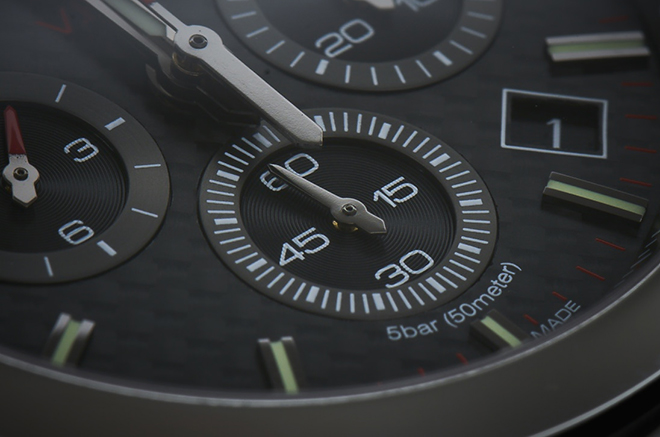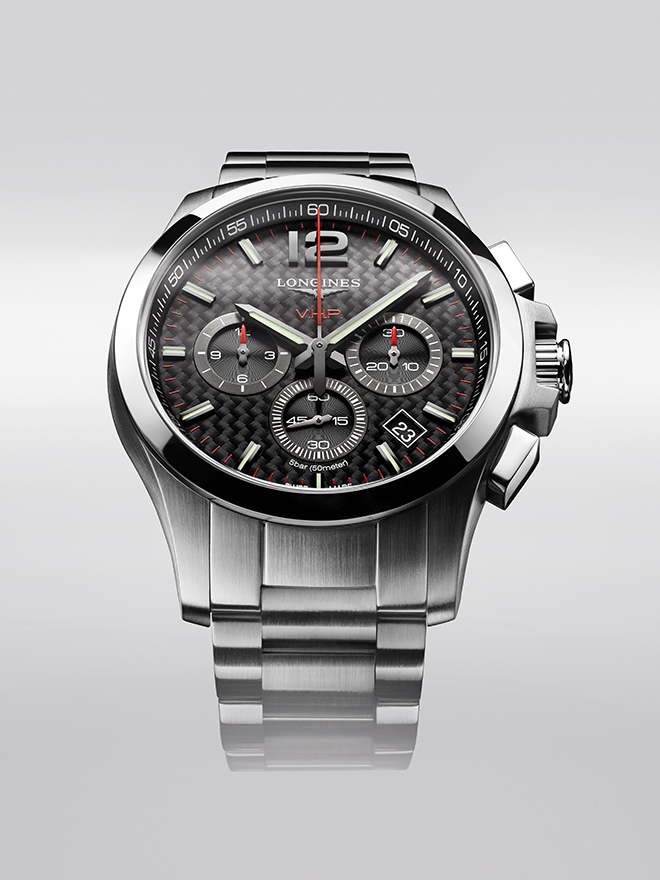
Longines Ultra Quartz
Timekeeping, and by extension wristwatches, used to hold much greater allure and prestige among a broader spread of society than it does today. This is not a reference to the 19th century or something, but instead mere decades ago, at the precise moment quartz gave more people the chance to have their own personal timekeepers. Strangely, the promise of a brighter future for accuracy did not pan out as planned.
Budget air travel and an ocean of information distributed worldwide that can be called up in an instant on any screen from phone to tablet and terminal, have set the bar very high for curios. In other words, nothing excites anymore. Though it has only been a few centuries since table-sized clocks were accurate enough to be fitted with minute hands, and just about a century since the affordability of wristwatches extended beyond gentry to the common man, the general public seems to have largely forgotten what an awesome thing a wearable timekeeper is, in reliably dividing the continuum of time into discrete intervals that we can mark and measure.

The digital timekeeping future began in earnest with Longines leading the charge in Switzerland
Quartz watches: An Existential Crisis
We bring this up because before accurate timekeeping became so commoditised (appearing on phones and ovens, as it is often bemoaned) that it descended into the mundane, watches were special and regarded with the respect accorded to specialist instruments. And the very thing they specialised in was precision timekeeping. Those were the days when chronometry competitions would generate a fair bit of excitement, because creating a supremely accurate watch was no small feat of technical ingenuity.
The advent of quartz changed all that. When a plain vanilla quartz watch mass produced on a dime (figuratively speaking) can sustain 10 times the accuracy of even highly accomplished mechanical watches, the mystique around highly accurate (by pre-quartz standards) watches simply disappeared. Timekeeping has since been relegated to quartz, while mechanical timekeeping has largely reinvented and reinvigorated itself, largely abandoning the pursuit of absolute accuracy.

Longines VHP, definitely not your vanilla Quartz watch
The Neuchâtel observatory held the last of the old-era chronometry competitions in 1972. In 2009, the watchmaking museum in Le Locle, Switzerland celebrated its 50th anniversary by launching the International Chronometry Competition. After successive editions of the biennial event with really short lists (as opposed to shortlisted) of competitors, it was decided that the 2017 edition would be postponed. There are a few reasons for this – it wasn’t “international” and only top winners in each category were announced as a special consideration to thin-skinned 1st and 2nd runners up if they chose to remain anonymous – but the very idea of precision timekeeping, whether from a quartz or mechanical timepiece, just wasn’t very relevant anymore.
Unparalleled precision: Longines VHP collection is not Your ordinary Quartz watch
Heaven knows we still need precision timekeeping. How else would we know our eggs are just right? But being concerned about precision timekeeping has become akin to worrying about not having enough ice in winter. To be fair, absolute accuracy is these days largely a function of atomic clocks and these perform vital functions along the bleeding edge of science and technology. In fact, the accuracy of the atomic clock shames even the most sophisticated quartz ticker, much like quartz itself once did with its mechanical predecessor.

That is why Longines VHP Conquest is such a refreshing gesture, in bringing precision back into the discussion in a meaningful way. VHP is just Very High Precision, no more, no less. There have simply been too many articles that begin with “you no longer need your watch to tell the time” as a preamble to reviews of yet another timepiece sporting all manner of exotic features at real estate prices that don’t relate much to time telling. The Longines VHP dispenses with both ostentatious mechanics and smartwatch multi-feature computing power. Instead, it is all-muscle about accuracy, with zero body fat.
Precision and Autonomy: Longines VHP collection
Two types are available (basic three-hand and chronograph) in a handful of dial options (black, silvered, carbon effect, and blue) and two cases sizes so Longines has got a wide spectrum of preferences covered. The headline feature is that the VHP will tell the time accurately with a margin of error at +/-5 seconds a year. In other words, you’ll gain or lose just about 5 seconds on this watch a year.


Driven by a quartz movement developed by sister company ETA exclusively for Longines, the VHP has few rivals at this level of precision – the Citizen Chronomaster comes to mind, with which the VHP notably shares some features.
Conventional quartz watches usually manage around +/-15 seconds a month, and chronometer-grade mechanical watches will deviate by a few seconds a day. At +/-5 seconds a year, there is no reason to ever reset the VHP for the duration of its battery life, rated at five years. Not even to set the date, as it features a perpetual calendar that will get the date right till the year 2400.
For travellers, the hour hand can be adjusted independently in one-hour steps, and gentler turns of the crown will manage the 30-min gaps between certain time zones. The watch also features a Gear Position Detection (GPD) system that monitors the position of the hands, so if the watch experiences a shock (if, dropped for example) or encounters strong magnetic fields and the hands are affected, the system will kick in to set the hands to the correct time. It is entirely autonomous, requiring no intervention from the wearer, and neither is it connected by radio waves to any higher authority – it is just a very accurate watch that takes care of itself to remain so.

For extended periods, when you do not expect to wear it, you can pull the crown to put the watch to sleep – when it is pushed back, it will remember what time and date it is supposed to be and set itself accordingly. It is a neat trick the WOW team saw in person at BaselWorld and it is quite magical. It also makes stopping the watch for photoshoots so that the time remains fixed at 10:10 terrifically difficult! If this seems familiar, you might have seen something like it in Seiko’s Kinetic Auto Relay watches.
We still need accurate time, and nothing is more convenient than a flick of the wrist to get it. Smart watches do a fair bit more, if one doesn’t mind charging them all the time, and radio-controlled watches are great if you live in a region adequately bathed in signals from those aforementioned atomic clocks. But if you want a solid watch untethered to anything but your convenience, the Longines VHP could very well be the last watch you need. Want is a different matter of course!




Longines VHP: Tradition of Precision Timekeeping
Longines has a track record of precision timekeeping, being a pioneer of sports timing, while winning numerous timekeeping awards for its timepieces in its 185-year history. In 1954, it developed its first quartz clock which set a series of precision records at the Neuchatel Observatory. This clock formed part of the Chronocinégines sports timing system which included a camera that captured images at 100 frames per second, leaving no room for dispute at the finish line.
It was also among the first manufacturers to introduce a quartz watch when it launched the Ultra-Quartz in 1969.
Its next chapter in high accuracy quartz arrived in 1984 when it introduced the Conquest VHP. The latest VHP collection of 2017 has pushed the limits of precision even further, with convenient features like self-regulation, time-zone setting and perpetual calendar that make it one of the easiest watches to live with.
The post Unparalleled precision: Longines VHP collection is not Your ordinary Quartz watch appeared first on LUXUO.
